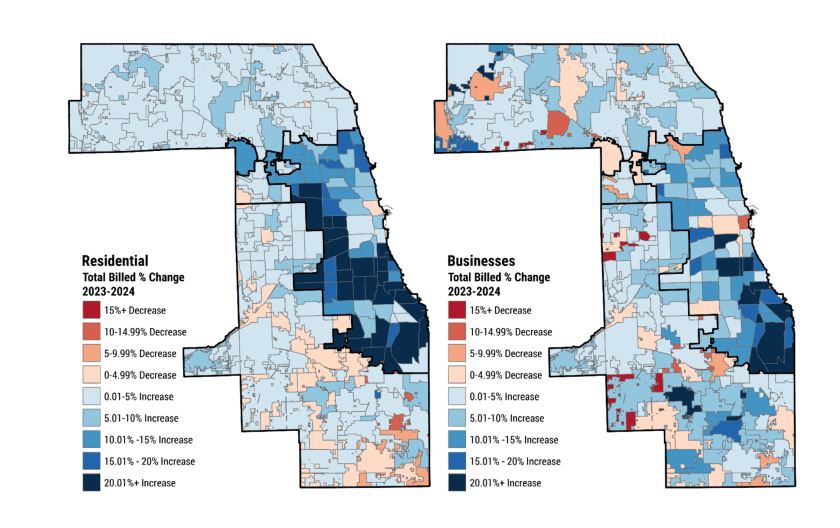Business
Avoiding Deal Killers: 5 Legal Red Flags to Spot Early in Chicago & Suburban Transactions
Passionate writer sharing insights, expertise, and knowledge on various topics to inspire and inform readers worldwide.

A real estate transaction rarely falls apart because of one dramatic discovery. More often, the deal begins to fracture because of smaller issues that were noticed too late, misunderstood, or left unaddressed until the negotiation leverage was gone. The most effective agents are those who can identify potential legal complications early enough that the attorney can intervene calmly, rather than urgently. This is not about diagnosing or resolving legal issues. It is about developing the awareness to recognize where deals historically tend to weaken.
Chicago and its surrounding suburbs present a distinctive range of property types, building ages, and municipal regulations. A two-flat in Avondale carries different considerations than a condominium conversion in West Loop, and both differ significantly from a suburban single-family home in Naperville. Understanding where legal red flags typically arise ensures that your clients move through the transaction with clarity and without unnecessary surprises.
1. Condo Association Financial Stability
The financial position of a condo association is one of the most reliable predictors of future cost and stability. A well-managed association should demonstrate adequate reserves, predictable maintenance planning, and transparent communication. Weak reserves, frequent special assessments, and litigation history may indicate deeper structural issues within the building or the board. When a client understands the association’s financial posture early, they can make a more informed decision about long-term ownership risk.
A brief review before drafting the offer can prevent misalignment later. Your role is not to interpret the documents legally but to recognize when something seems incomplete, delayed, or inconsistent. In those cases, your attorney should review further.
2. Parking, Driveways, Easements, and Access Rights
In Chicago’s denser neighborhoods, parking access often involves shared driveways, alley easements, or rights-of-way that were recorded decades ago. In the suburbs, private roads and shared access to septic or well systems create similar complexity. Missing documents or unclear access language can jeopardize closing or introduce liability concerns for the buyer.
If something about access is informal, verbal, or based on habit rather than recorded rights, the attorney should be engaged immediately. Access issues are often solvable, but they require time and clarity—both of which diminish once the contract is executed.
3. Unpermitted Additions and Renovations
Many homes in both the city and suburbs feature additions, basement refinishing, attic conversions, or deck expansions that may not have been formally permitted. Even when the work is high quality, the lack of permit history can affect insurance coverage, financing approval, and resale value. This is especially relevant in:
Coach houses
Basement apartments
Dormered attics
Enclosed porches or garage conversions
You are not confirming compliance. You are observing the likelihood of past improvements and prompting the client to request documentation.
4. Zoning Classification vs. Actual Use
Multi-unit properties require particular attention. A property presented as a “legal three-flat” may, in fact, be zoned as a two-flat with an unapproved garden unit. This discrepancy influences financing options, insurance classifications, rentability, and resale strategy. Zoning conflicts can be corrected, but those conversations must begin before attorney review becomes constrained by contract timelines.
Clients appreciate when you do not simply accept marketing language at face value. They trust the agent who is willing to verify.
5. Seller Disclosure Gaps
Disclosures often reveal as much in what is omitted as in what is stated. If the roof appears older than records suggest, if past water issues are vaguely described, or if mechanicals lack documentation, these are not accusations—they are prompts for clarification. Clients do not resent questions. They resent being surprised.
Your presence here is interpretive in the sense of recognizing patterns, not providing legal judgment.
The Strategic Role of the Agent
The agent’s responsibility is not to resolve these matters. It is to sequence them appropriately. When concerns are raised early, the attorney has room to negotiate adjustments, clarify obligations, or request documentation in a constructive tone. When concerns surface in panic at the end of the review window, the conversation becomes reactive and often adversarial.
The strongest agents are not the ones who avoid complexity. They are the ones who guide clients through complexity with steadiness and foresight.
When you consistently surface these red flags early, clients experience the transaction as thoughtful rather than uncertain. That sense of thoughtful guidance is what converts clients into long-term referrals.
Author



